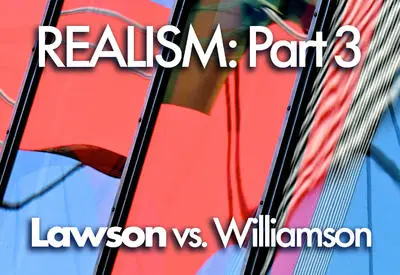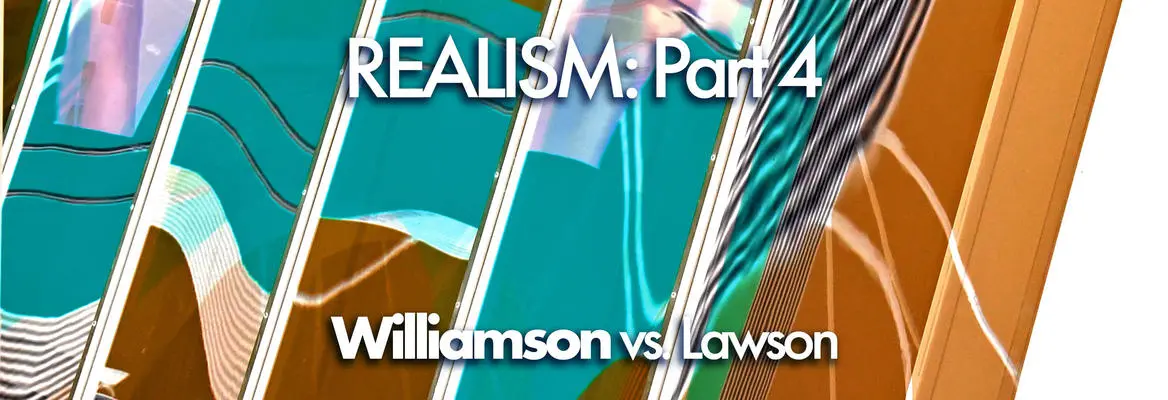In his recent article, Hilary Lawson argued that realism fell into paradox and that post-realism could retain both empiricism and rationalism, making it the future of philosophy. But not only are those paradoxes surmountable, logic itself demands realism - an inconvenient fact which makes Lawson’s post-truth project impossible - argues Timothy Williamson.
Hilary Lawson’s article ‘Post-realism’ could equally well have been entitled ‘Post-truth’, since it is truth that he is declaring obsolete. Since he is responding to my piece In defence of realism, I will explain where his objections go wrong.
 SUGGESTED READING
Post-realism
By Hilary Lawson
Lawson points out that appeals to truth will not defeat dictators and demagogues, whose supporters are convinced that they already have the truth. But the question is not whether the distinction between truth and falsity is sufficient for blocking tyranny—of course it isn’t—but whether it is necessary for doing so. A resistance which cannot call out the tyrant’s lies as false is in bad shape. Without truth, there is no falsity either, for a false statement is just one whose denial is true. Conversely, a true statement is one whose denial is false. Truth and falsity come as a package. In telling us to give up the category of truth, Lawson is by implication telling us to give up the category of falsity too. Do we really want to live in a world of post-falsity politics?
SUGGESTED READING
Post-realism
By Hilary Lawson
Lawson points out that appeals to truth will not defeat dictators and demagogues, whose supporters are convinced that they already have the truth. But the question is not whether the distinction between truth and falsity is sufficient for blocking tyranny—of course it isn’t—but whether it is necessary for doing so. A resistance which cannot call out the tyrant’s lies as false is in bad shape. Without truth, there is no falsity either, for a false statement is just one whose denial is true. Conversely, a true statement is one whose denial is false. Truth and falsity come as a package. In telling us to give up the category of truth, Lawson is by implication telling us to give up the category of falsity too. Do we really want to live in a world of post-falsity politics?
We need the idea of falsity for another reason too. Intellectual humility requires understanding the hypothesis that some of one’s current beliefs are false. If there is no such thing as being right, there is also no such thing as being wrong.
According to Lawson, however as much we might want the distinction between truth and falsity, we cannot have it, because it has been exploded by paradoxes of self-reference. For example, let ‘L’ label the sentence ‘L is not true’. Ask yourself whether L is true. If it is, it isn’t, and if it isn’t, it is, by standard patterns of reasoning.
Unfortunately, Lawson gives a highly misleading picture of modern research on the paradoxes, which he presents as merely a series of failed attempts to solve them. He does not specify what he means by ‘solve’ in this context. A basic standard is to specify clear rules for reasoning with the terms ‘true’ and ‘false’ which lead to no contradiction when applied to sentences like L. Many available treatments of the paradoxes meet that standard, including those of Alfred Tarski and Saul Kripke, mentioned in my earlier piece as recognized leaders in the field. To dismiss their achievements is a serious injustice, though perhaps post-realism dumps the distinction between justice and injustice along with the distinction between truth and falsity.
If there is no such thing as being right, there is also no such thing as being wrong.
Current research on the paradoxes, such as that of my Oxford colleague Volker Halbach, builds on the work of Tarski, Kripke, and others in order to go further and deeper. Just as in natural science, it is not a matter of scrapping what one’s predecessors did and going back to the drawing board. Unlike Lawson, logicians who study the paradoxes do not take them to show that there is no truth. More reasonably, they treat them as showing that reasoning about truth is not as simple as it first seemed.



















Join the conversation